On the morning of July 22nd, the 8th China Modern Service Industry and Service Trade Talent Training Forum was held in GZUC. The forum was guided by China Association of Trade in Services and Department of Commerce of Guizhou Province, and hosted by the Expert Committee of China Association of Trade in Services. With the theme of "Integrating industry and education to cultivate people in a coordinated manner, promoting the high-quality development of modern service industry and trade in services", dozens of guests will discuss and exchange ideas on topics such as strengthening the integration of industry and education, and new models and paths for training talents of trade in services.
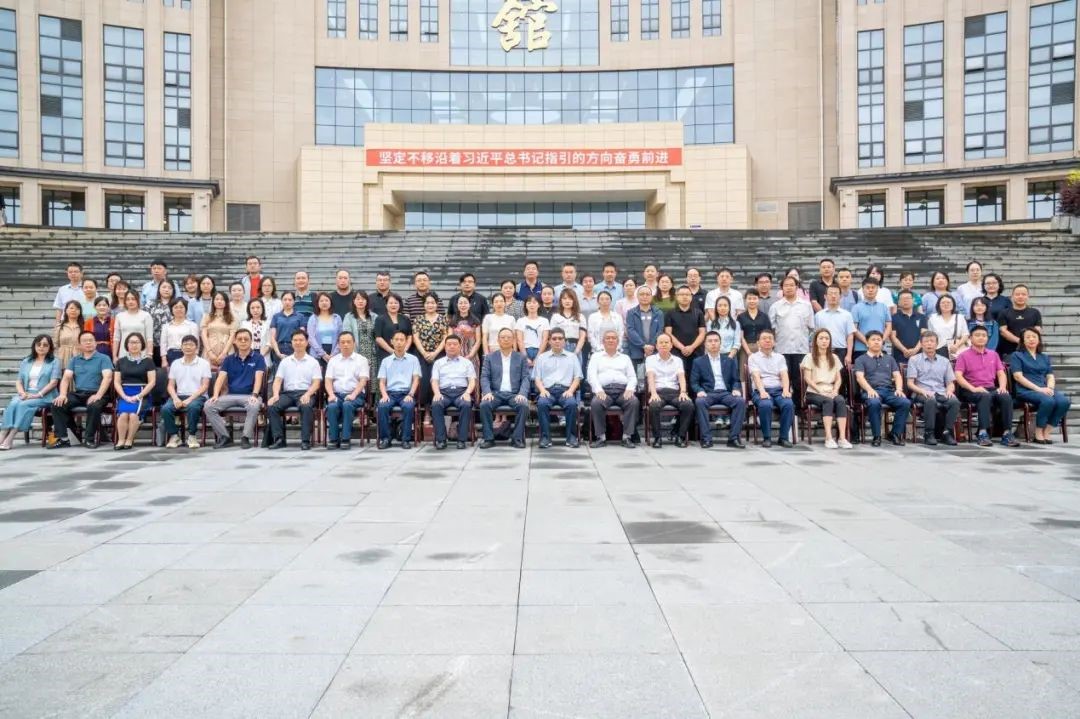
Some participants took a group photo
Zou Xiaodong, Vice President of China Association for Trade in Services; Nie Yunbo, second-level Inspector of Department of Commerce of Guizhou ; Lyu Guofu, Party Secretary and second-level Professor of GZUC; Luo Bing, Vice Party Secretary and President of GZUC; Shi Jianping, Executive Vice Chairman of Expert Committee of China Association for Trade in Services and former Vice President of Central University of Finance and Economics; Wang Xiaowei, Assistant Secretary General of China Association for Trade in Services; Shi Jianguo, Executive Vice President of Educational Equipment Research Institute of China Educational Equipment Industry Association, Wang Haiwen, Vice Chairman of Expert Committee of China Association for Trade in Services and Vice President of School of Economics of Beijing International Studies University, Wang Danfeng, Vice President of Huike Education Technology Group and President of Guizhou Huike Future Technology Co., LTD., Zhai Haomiao, Director of Fintech and International Investment Research Center of Sichuan International Studies University, Li Na, Sales Director of Isoftone Power Group, Vice General Manager of Southwest Region of Isoftstone Education and other guests, as well as more than 150 representatives from universities, research institutions, business authorities and enterprises across the country attended the forum. The forum was presided over by Li Jun, President of Labour Union and Deputy Secretary General of China Association of Trade in Services.
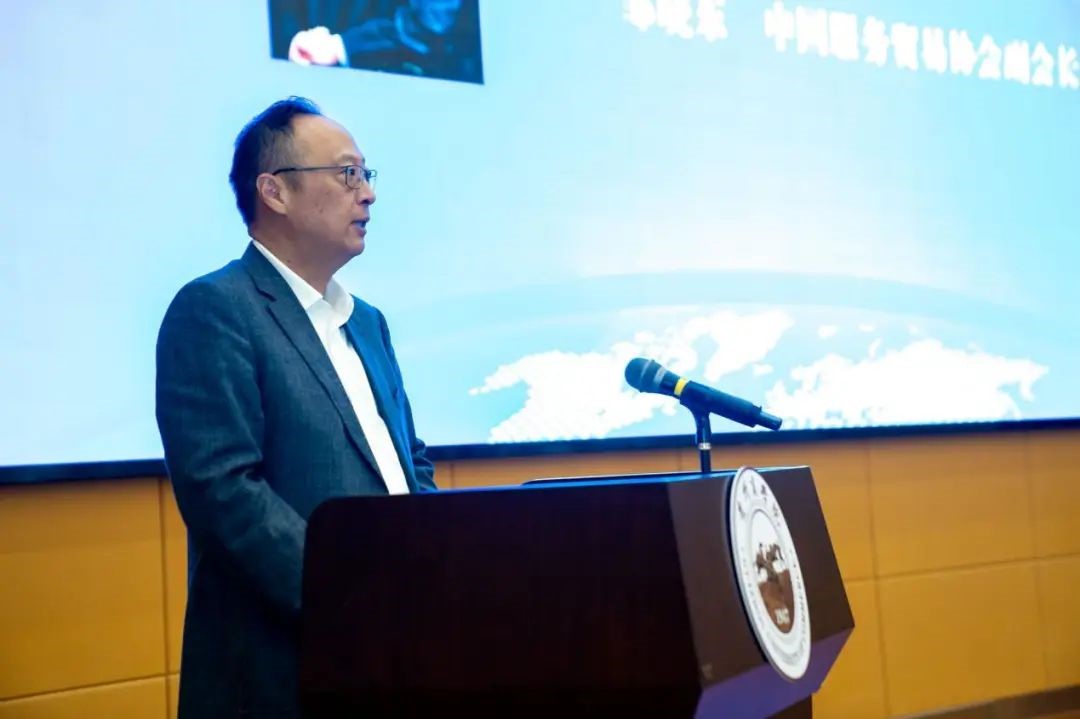
Zou Xiaodong, Vice President of the China Association for Trade in Services
In his speech, Zou Xiaodong, Vice President of the China Association of Trade in Services, said that China's total import and export of services in 2022 will be 598019 billion yuan, up 12.9 percent year on year, more than five percentage points higher than trade in goods. Under the background that the focus of global economic competition is gradually shifting from trade in goods to trade in services, as well as China's transformation from a big country in goods trade to a big country in services trade, strengthening the training of talents trade in services has become a top priority. As China opens its door wider and wider, the scope, field and level of opening to the outside world continue to expand, the mode of foreign trade continues to innovate, the number of cooperation projects is increasing, and the demand for international compound talents is also increasing. The purpose of this forum is to explore new paths and new methods for training talents of trade in services under the background of digitalization.
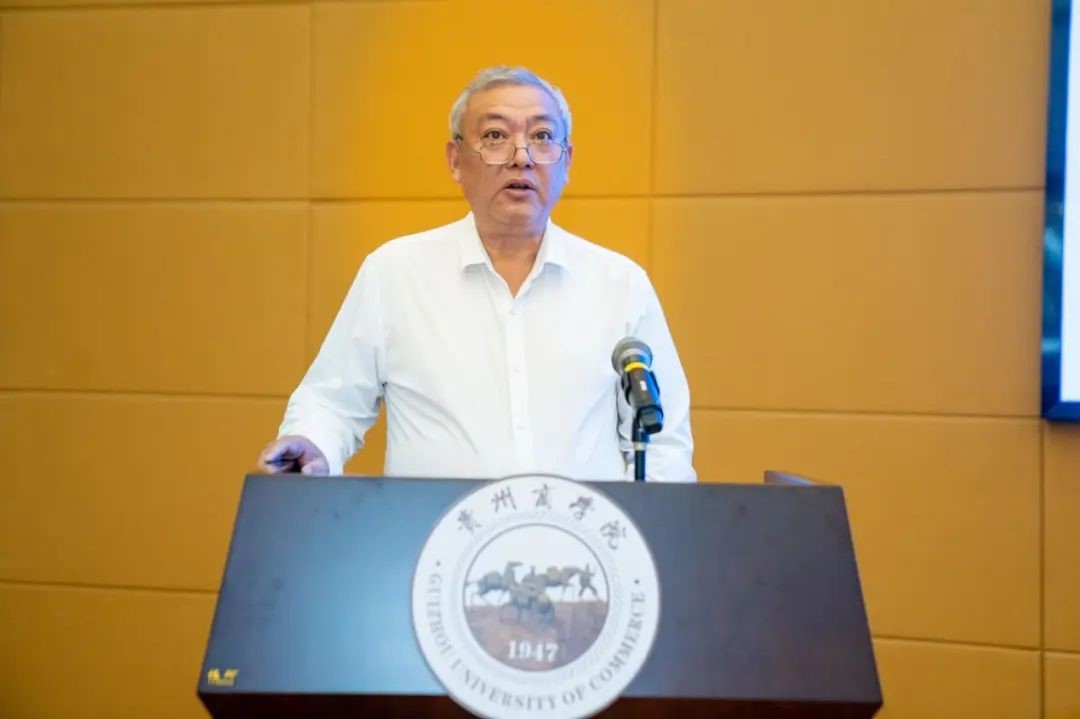
Nie Yunbo, second-level Inspector of Department of Commerce of Guizhou Province
Nie Yunbo, second-level Inspector of of Department of Commerce of Guizhou Province, introduced the development of trade in services in Guizhou province in his speech. Guizhou Province has seized the major strategic opportunities of RCEP (Regional Comprehensive Economic Partnership), aimed at the direction of inland free trade port construction, deeply promoted institutional opening, comprehensively promoted the construction of trade in services cluster in western China, and with big data, big tourism and big health as industrial support, has established trade relations with 110 countries and regions. In terms of talent training, Guizhou Province has comprehensively optimized the cultivation and introduction of talents through various forms such as university training, university-enterprise cooperation, enterprise introduction, social training etc. and vigorously cultivated high-level talents with close integration of industry, university and research.
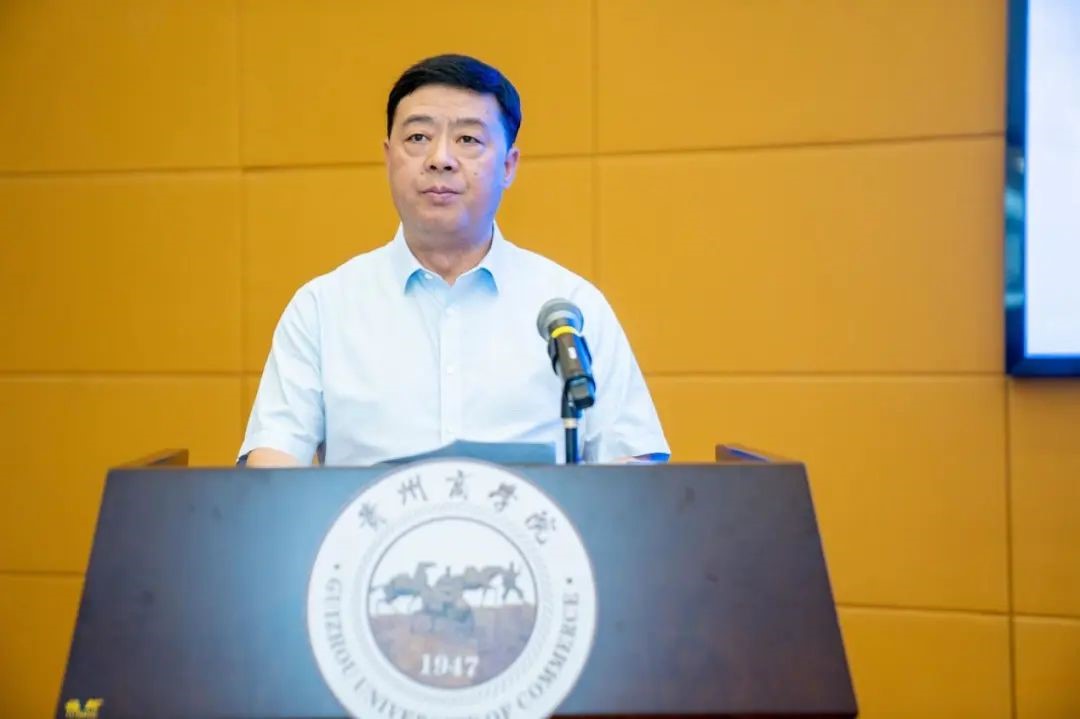
Lyu Guofu, Secretary of the Party Committee of GZUC
Lyu Guofu, Secretary of the Party Committee of GZUC, introduced the history of GZUC in his speech. The university has implemented the fundamental task of cultivating people with moral integrity, firmly positioned itself as a local and application-oriented university, aimed at building a high-level university of new business, oriented to modern service industry and business digitalization. Cultivate high-quality applied talents with solid professional foundation, strong practical ability, business acumen, creative vitality, spirit of responsibility, and practical style to provide intellectual support for the high-quality development of Guizhou. The university actively explores a new mode of integration of industry and education, further enhances the synergistic effect of industry, education and research, focuses on "business", works hard on "new", and achieves results in "application", and cultivates the characteristics of co-development with regional economy and win-win growth with industrial enterprises, and further promotes the integration of industry and education to fully serve the local economic and social development.
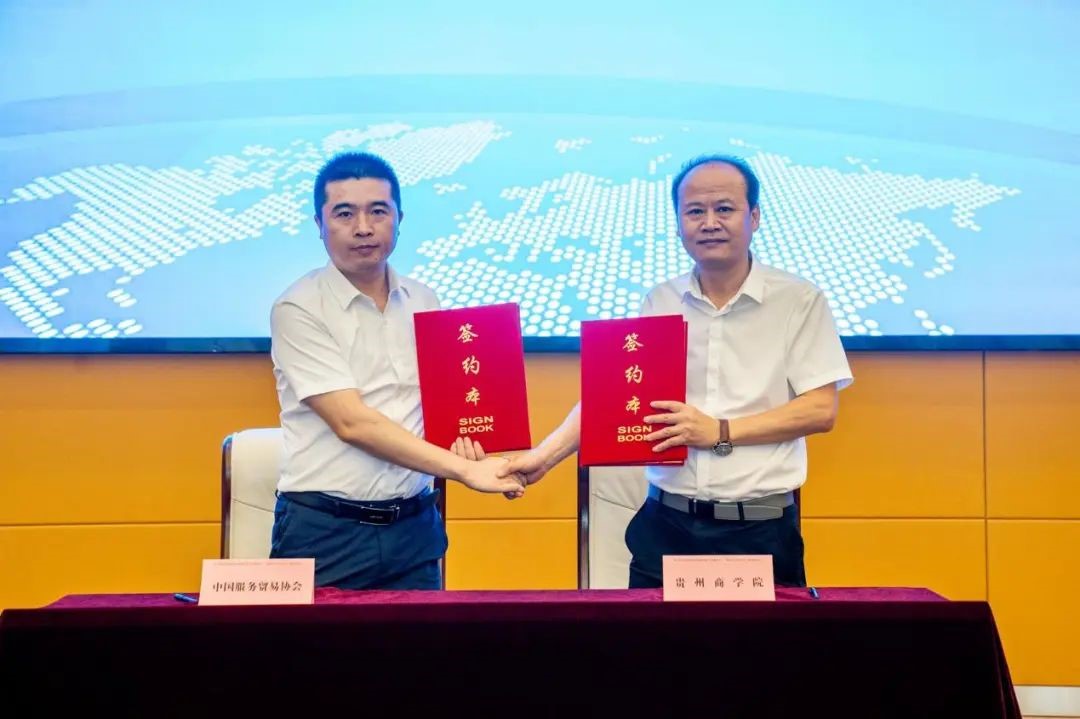
China Association for Trade in Services signed a framework agreement on industry-university-research strategic cooperation with GZUC
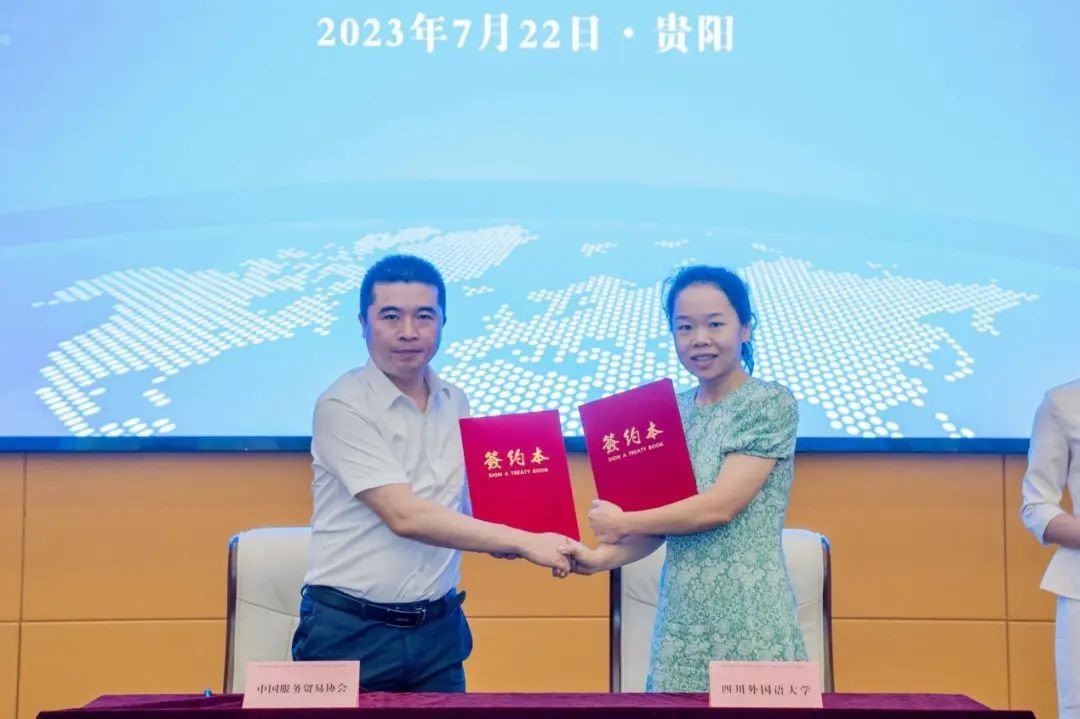
China Association for Trade in Services signed the framework agreement on industry-University-research strategic cooperation with Sichuan International Studies University
Subsequently, China Association for Trade in Services signed the framework agreement on industry-university-research strategic cooperation with GZUC and Sichuan International Studies University. According to the agreement, the two sides will comprehensively promote the establishment of a long-term mechanism of industry-university-research cooperation and collaborative education, promote the interconnected development of education and industry, and cultivate applied, composite and innovative talents. In the future, the two sides will carry out cooperation in building practice and training bases, jointly innovating talent training models, developing university-enterprise cooperation courses, and exploring new models of integrated development of industry and education.
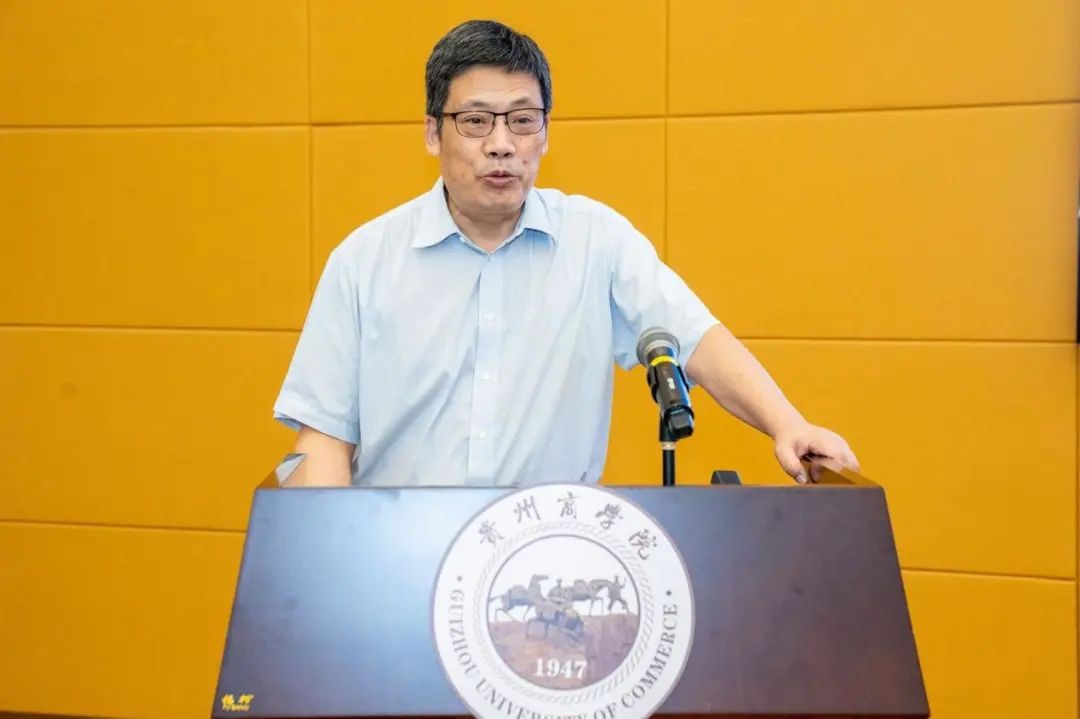
Shi Jianping, Executive Vice Chairman of Expert Committee of China Association of Trade in Services, former Vice President, professor and doctoral supervisor of Central University of Finance and Economics
In the keynote speech, Professor Shi Jianping, Executive Vice Chairman of the Expert Committee of China Association for Trade in Services and former Vice President of Central University of Finance and Economics, said that the development of the digital economy has had a significant impact on the service objects, service technologies, industrial forms, regulatory technologies and risk control of the financial industry. The digital transformation of finance will bring a profound change to the traditional financial industry. Financial talents in the era of digital economy need to have financial theoretical literacy, information technology foundation, data analysis and application ability. This requires professional transformation, the integration of industry and education, and the innovation of talent training mode.
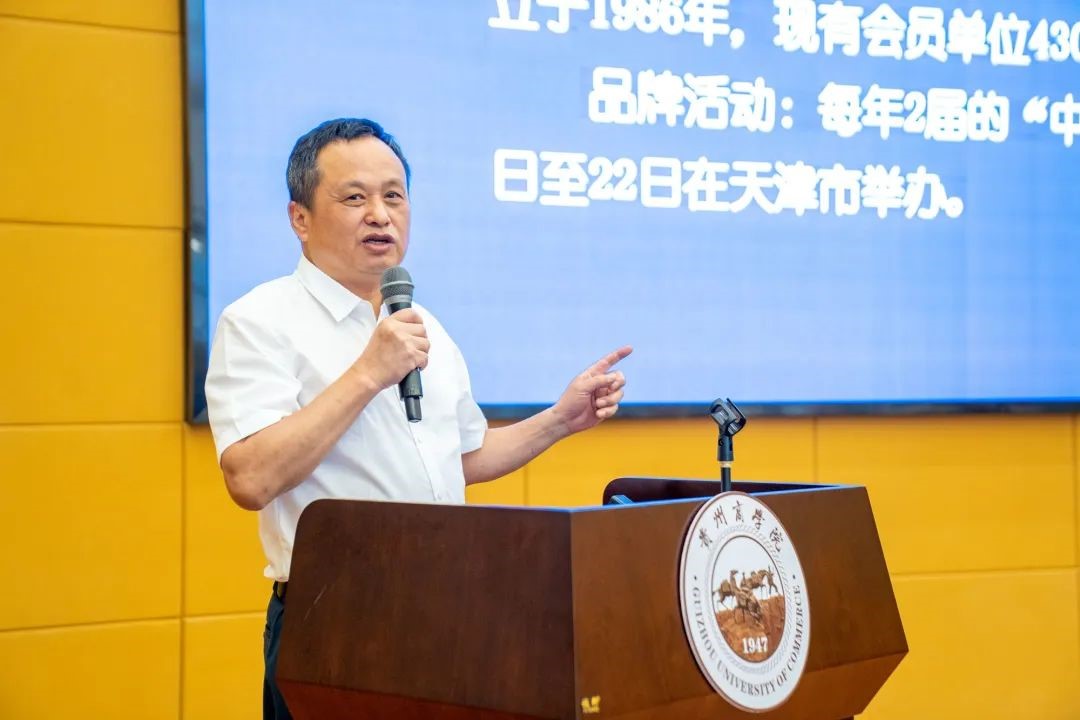
Shi Jianguo, Executive Vice President of Educational Equipment Research Institute of China Educational Equipment Industry Association
Shi Jianguo, Executive Vice President of Educational Equipment Research Institute of China Educational Equipment Industry Association, said that education digitalization transcends the limitations of traditional education information, focuses on the educational nature of education "development for everyone, all-round development", conforms to the needs of social development and talent training in the information age to realize the model and process renovation of teaching content, teaching method, education supply and education governance, and to carry out systematic reform and reshaping of education through data empowerment. Therefore, digital education has four major values: fair and inclusive education, better quality education, education suitable for everyone, and education for green development.
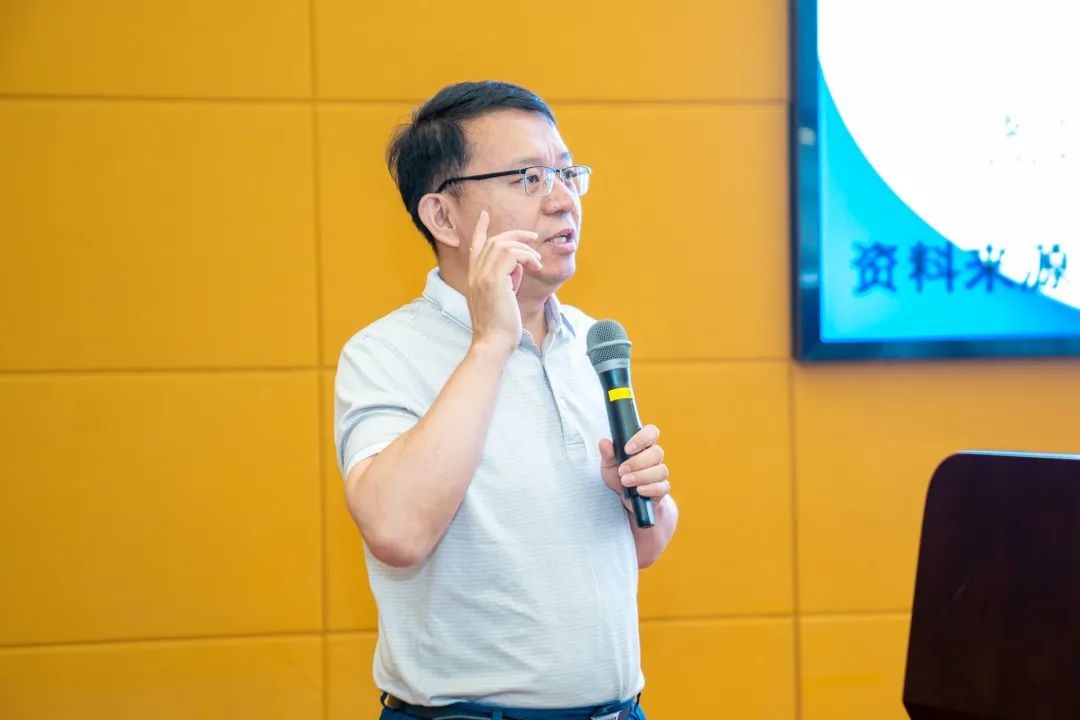
Professor Wang Haiwen, Vice Chairman of the Expert Committee of China Association for Trade in Services and Vice Dean of School of Economics, Beijing International Studies University
Professor Wang Haiwen, Vice Chairman of the Expert Committee of China Association for Trade in Services and Vice President of the School of Economics of Beijing International Studies University, sorted out the new pattern and new trend of international trade, pointing out that there are problems in talent training under the new pattern of international trade, such as superficial theoretical learning, insufficient tracking of situation and policy, and weak attention to industry development. He put forward four innovative ways to cultivate talents: to achieve the specialized training of international trade talents; To build a comprehensive framework system for training international trade talents; Vigorously improve the quality of international trade personnel training; And effectively serve the major national strategies and the construction of an open pattern.
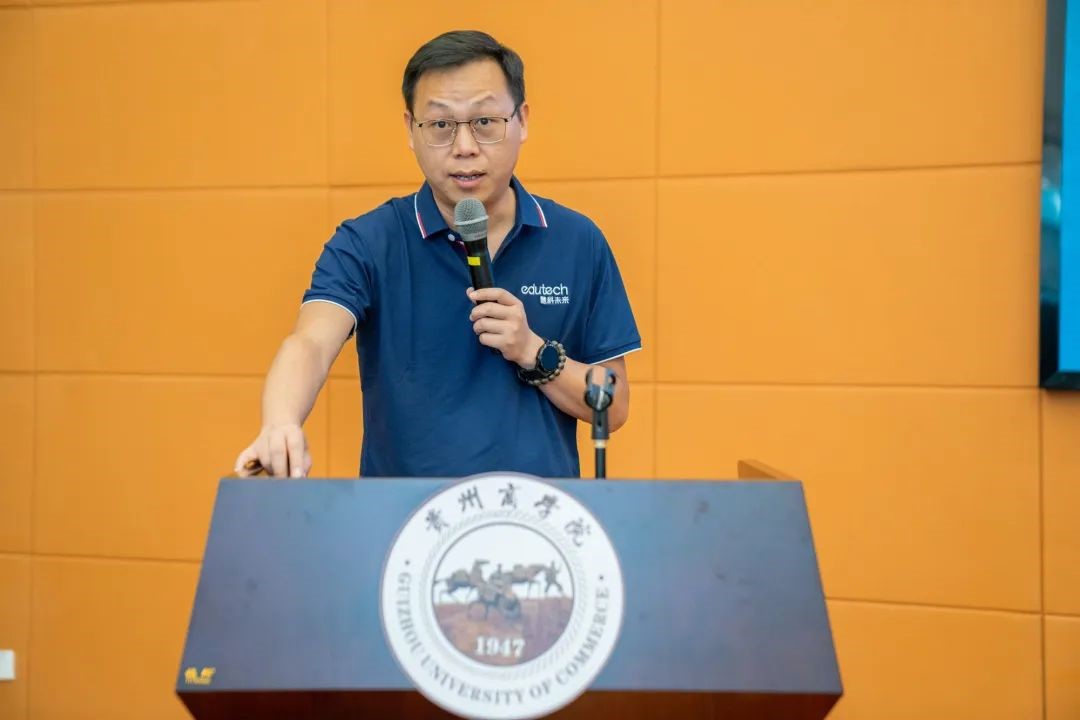
Wang Danfeng, Vice President of Huike Education Technology Group and President of Guizhou Huike Future Technology Co., LTD
Wang Danfeng, Vice President of Huike Education Technology Group and President of Guizhou Huike Future Technology Co LTD, pointed out that as the speed of industrial development is faster than that of education, there is a disconnect between education and industry, and talent supply and demand face an imbalance in structure and quality level. The industry-university integration model of Huike break the barriers of cooperation between universities and enterprises, allowing professional teaching and research teams with industrial background, enterprise technology, and resources into the talent training process, to promote the transformation of talent training model, crack the problem of "industry-university disconnect".
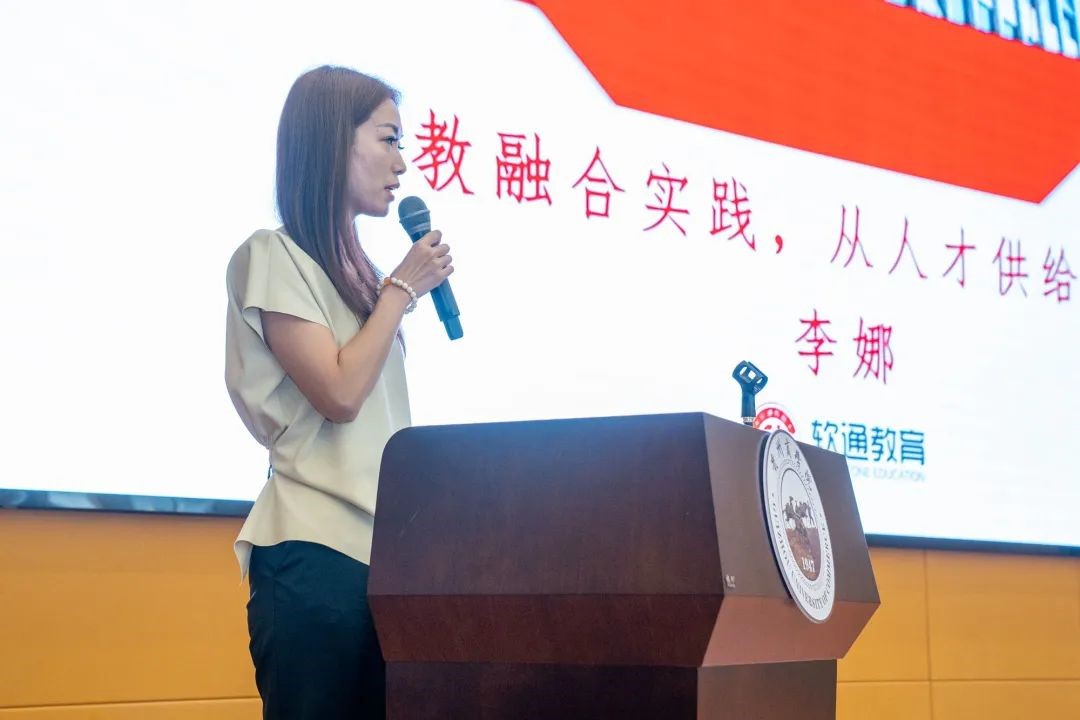
Li Na, Sales Director of Isoftstone Power Group and Deputy General Manager of Southwest Region of Isoftstone Education
Li Na, Sales Director of Isoftstone Power Group and Deputy General Manager of Southwest Region of Isoftstone Education, introduced the industry-education integration practice of Isoftstone Education, taking the project of Isoftstone Education as an example. Isoftong Education jointly builds a digital "dream factory" with universities, connecting it with actual projects, applying the industry's most advanced industrial applications in the form of "platform + project", building a real production environment in universities, using real cases from enterprises for teaching practice and exercising in real corporate projects and work positions. Starting from the actual project, it allows talents to directly participate in industry projects in the training process, so as to realize the seamless connection between students' skills and the needs of enterprises, so that students can improve their technical skills while improving their professionalism, comprehensively improve the quality of talent training and student employment, and solve the needs of industrial talents.
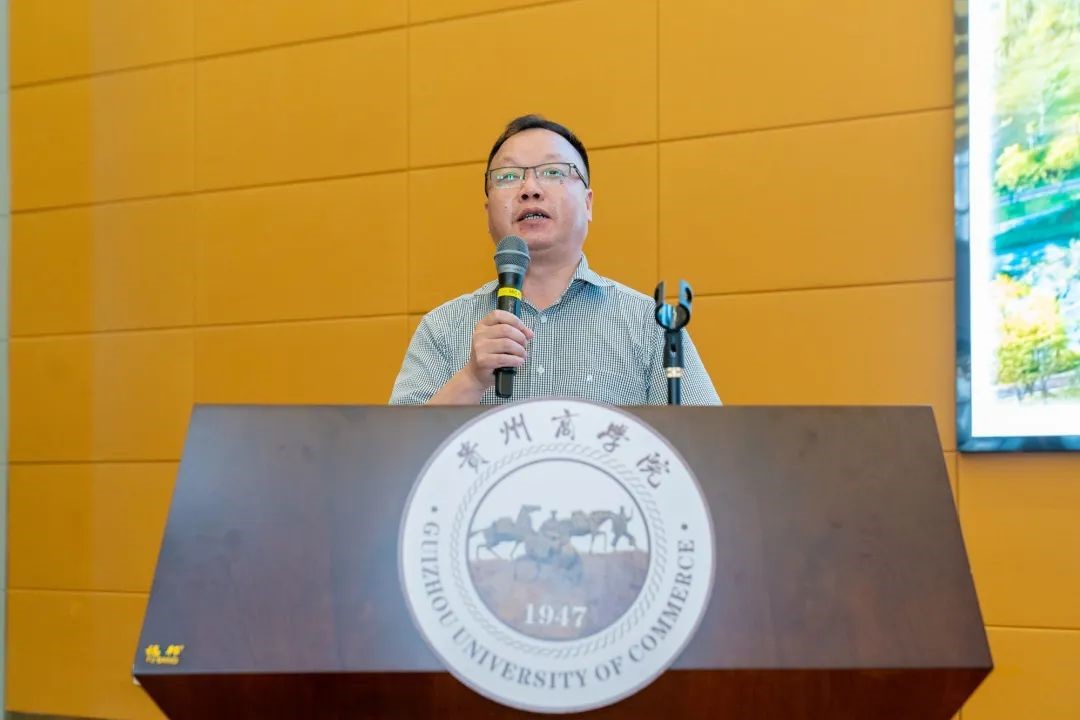
Professor Zeng Shaolun, Dean of School of Economics and Finance, GZUC
Professor Zeng Shaolun, Dean of the School of Economics and Finance of GZUC, shared the design, measures and results of the teaching reform of the university's new business education. The university promoted the teaching reform around "business as the focus, law and business integration, technical support, and humanistic penetration". Measures have been taken to change the layout of majors, change the curriculum system, strengthen the practical education system, and strengthen the cultivation of mass innovation talents. Positive results have been achieved, such as 3 courses approved by the provincial "Gold Course"; Students actively participated in various knowledge and quality competitions and obtained excellent results; Chen Jing, Academician of the Chinese Academy of Engineering, was introduced to build the Center of Aerospace Data Analysis and Application Innovation.
The forum was guided by China Association of Trade in Services and Guizhou Department of Commerce, and hosted by the Expert Committee of China Association of Trade in Services. The forum was co-hosted by Guizhou University of Commerce, School of Economics of Beijing International Studies University, School of International Economics and Trade of Lanzhou University of Finance and Economics, School of Trade Negotiation of Shanghai University of International Business and Economics, School of International Finance and Trade of Sichuan International Studies University, China Clothing Website and Comprehensive Service Platform for Service Trade, and Southwest Representative Office of China Association for Trade in Services, co-organized by School of International Economics and Trade, Dongbei University of Finance and Economics, and School of International Economics and Trade, Shanghai Lixin University of Accounting and Finance, supported by Huike Future (Guizhou). It is understood that the forum will last until July 23, holding two special forums of "New Business Talent Cultivation" and "Integration of Industry and Education to Cultivate People", as well as teaching competitions on modern service industry and trade in services.
(Translated by Li Qian, Proofread by Li Jun)


